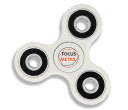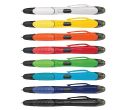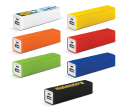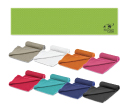Is There Ever a Good Time to Go Negative?
Ideally, marketers would just be able to sell the virtues of the product we represent, the products would fly off the shelves, the client would get “puff” interviews on CNN, and we’d win awards and kudos from the trade association for our creativity.
 But it doesn’t always work that way. There may be a product that is no better, but more popular than yours. You may develop a personal distaste for your competitor, or wonder why consumers can’t see that your product is light years better. Maybe we should spell it out for them. Thus, the urge to “go negative.”
But it doesn’t always work that way. There may be a product that is no better, but more popular than yours. You may develop a personal distaste for your competitor, or wonder why consumers can’t see that your product is light years better. Maybe we should spell it out for them. Thus, the urge to “go negative.”
In politics, this is expected. If you can get voters to loathe your opponent, they’ll vote for you. It’s an either-or kind of marketing decision. Marketing products is a different animal. In most instances, we don’t want to even mention the competition, because we are trying to create a world in which our product is the only one customers think about. But let’s say it’s too late for that. Let’s say the competition is Hertz, the well known, reliable brand, and we are Avis.
Do It Nicely
We need to distinguish ourselves form the other guy. Thus, at Avis, “we try harder.” They don’t mention Hertz, but everyone knows who they mean. Plus, in three words, they’ve acknowledged and answered the “bad service” objection. Great slogan if you can live up to it.
Another way to criticize the other guy is with humor. By now, everyone has seen Progressive Insurances‘ campaign featuring the irrepressible Flo and the insurance shoppers she runs into. Two of her shoppers turn out to be the unnamed employees of the other insurance company. They are slightly dim, wear wimpy-looking grey sport jackets, and they must not feel very good about their product, because they’re looking for a deal at Progressive.
Making Fun of “Them”
Very rarely do comparative commercials mention the competitor by name. There are a bunch of reasons, and we’ve already mentioned that you don’t want to recognize their existence. Let’s say, for example, that you’re No. 2 Avis, and you’re going to criticize Hertz head on. First, you come off looking negative, and second, Hertz may decide to take you on mano a mano, and because they’re bigger, they have a bigger budget and a larger cannon.
If you’re going “comparative,” perhaps the best route is to compare your product with an unmentioned “bad product” that says everything about the competitor, without mentioning them by name.
Consumers don’t need to be beaten over the head; creating an inside joke about a nameless competitor that can be shared around the water cooler is the more effective way to go.


















